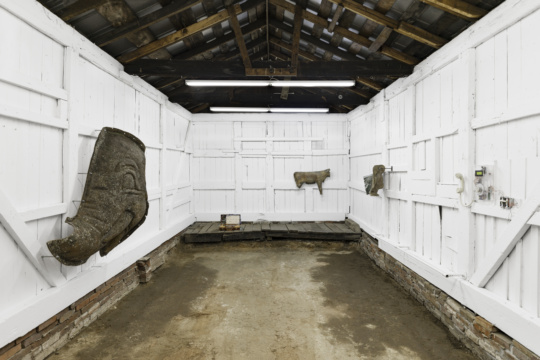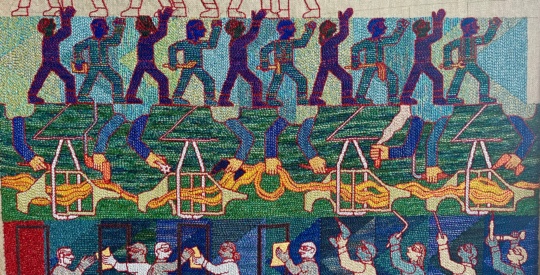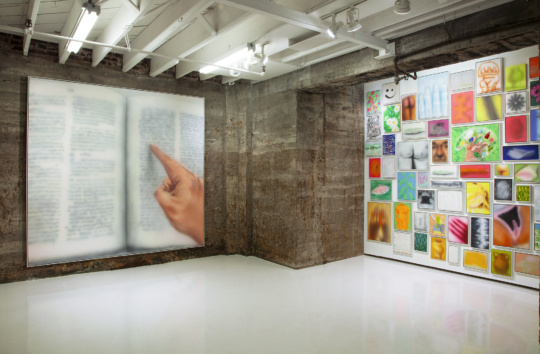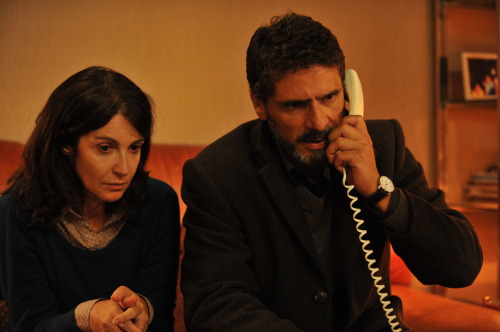
Now entering its 15th year, the Atlanta Jewish Film Festival (AJFF) is gearing up for its annual event, January 28 through February 19, with an ambitious slate of 65 films from 26 countries, including such diverse fare as Above and Beyond, Roberta Grossman’s documentary about the history of the Israeli Air Force, 24 Days (based on the 2006 kidnapping and torture of Ilan Halimi, a French-Moroccan Jew in Paris); the 50th anniversary screening of The Shop on Main Street, the 1965 Oscar winner for Best Foreign Language Film; and 2013’s A Place in Heaven, a touching saga of a dying Israeli army officer and his estranged ultra-Orthodox son that was nominated for 10 Israeli Academy Awards.
The festival has experienced phenomenal growth since its official launch in 2000, and this year is particularly significant because it is the first time that the festival is operating as an independent nonprofit arts organization. In the past, the festival was a programming initiative of the American Jewish Committee (AJC), but the increasing success of the event reached a point where its spinoff as an independent entity was the logical next step. Associate director Brad Pilcher noted the advantages of its new status, stating that it allowed the AJFF “to explore strategic programming and new funding sources that were not available to us before because the American Jewish Committee is primarily not an arts organization.” AJFF’s new status also enables them to finally relieve the Atlanta Journal-Constitution of the extensive planning and considerable expense of the annual event.
“It’s not a small operation at all. It takes us a year to plan one annual festival,” Pilcher said. “It becomes a real bear logistically in terms of overhead and costs to manage. So for the AJC to be able to still have a relationship with us, take advantage of the opportunities the festival provides, and not have to worry about the day to day, is really a win-win for everybody.”
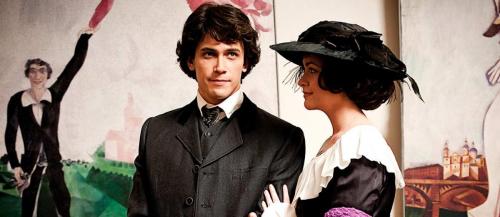
One aspect that has always distinguished the AJFF from other film festivals is its sense of purpose and educational outreach. “We’re a film festival that uses film and the medium to engage in dialogues with the Other: Jews with Muslims, Jews with Catholics, Blacks and Jews, Jewish groups within the Jewish community that may have differences. To get a chance to sit in a common space that everyone’s comfortable with and experience great art— that’s something that AJC has been able to really capitalize on and to foster the dialogue and discussions that really defines our mission.”
Every year the AJFF always programs a few films that are of particular interest to the arts community and the 2015 schedule includes several, such as Chagall-Malevich. Set in Marc Chagall’s childhood home of Vitebsk, Russia, during the years 1917-18, Alexander Mitta’s biographical portrait blends fact and fantasy in its depiction of the artist’s love affair with Bella Rosenfeld, his future wife, and his rivalry with Suprematist painter Kazimir Malevich. A more contemporary setting—a border checkpoint—sets the tone for Self Made in which the identities of two women, one a Jewish performance artist, the other an Arab outcast with a menial job, are switched accidentally by an Israeli guard. The mix-up results in a quirky black comedy that explores gender and cultural issues in a follow-up to director Shira Geffen’s 2007 debut Jellyfish (co-directed by Etgar Keret), which won the Cannes Camera d’Or prize in 2007.
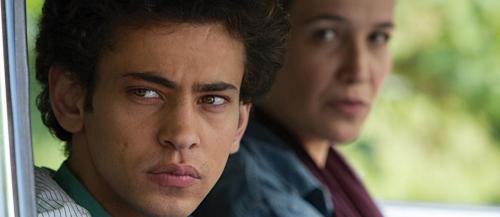
Among the art-related documentary entries are Raise the Roof and Regarding Susan Sontag. The former, directed by Yari and Cary Wolinksy, follows Boston-based artists Rich and Laura Brown as they recruit hundreds of craftsmen and volunteers to reconstruct an architectural marvel, a timber-framed synagogue with intricate mural designs that was destroyed by Nazis in the 18th-century town of Gwoździec, Poland. An intimate, personal approach is also taken by Nancy Kates with her fascinating profile of Susan Sontag, one of the most influential voices of 20th-century culture. A critic (On Photography), author (In America: A Novel), filmmaker (Promised Lands), political activist and teacher, Sontag is showcased sharing her thoughts about morality, ideology, and Jewish identify interspersed with interviews and candid comments from those who knew her best.
Some of the offerings on hand have already generated considerable film festival buzz and critical acclaim. Among these, Pilcher predicts that The Farewell Party (nominated for 14 awards by the Israeli Film Academy); Dough, featuring an all-star cast of Jonathan Pryce, Ian Hart, Pauline Collins, and Philip Davis; and Dancing Arabs are likely to be some of the hot-ticket items this year. Pilcher points to Dancing Arabs as a personal favorite and what he calls a“quintessential Atlanta Jewish Film Festival kind of story.” Directed by Eran Riklis, the movie charts the experiences of a Palestinian Arab student who is accepted into one of Jerusalem’s most prestigious boarding schools and weaves a Romeo and Juliet-type romance into what is essentially a character study of a young man trapped between two cultures. The screenplay is written by an Arab-Israeli journalist named Sayed Kashua based on his own experiences, Pilcher said.
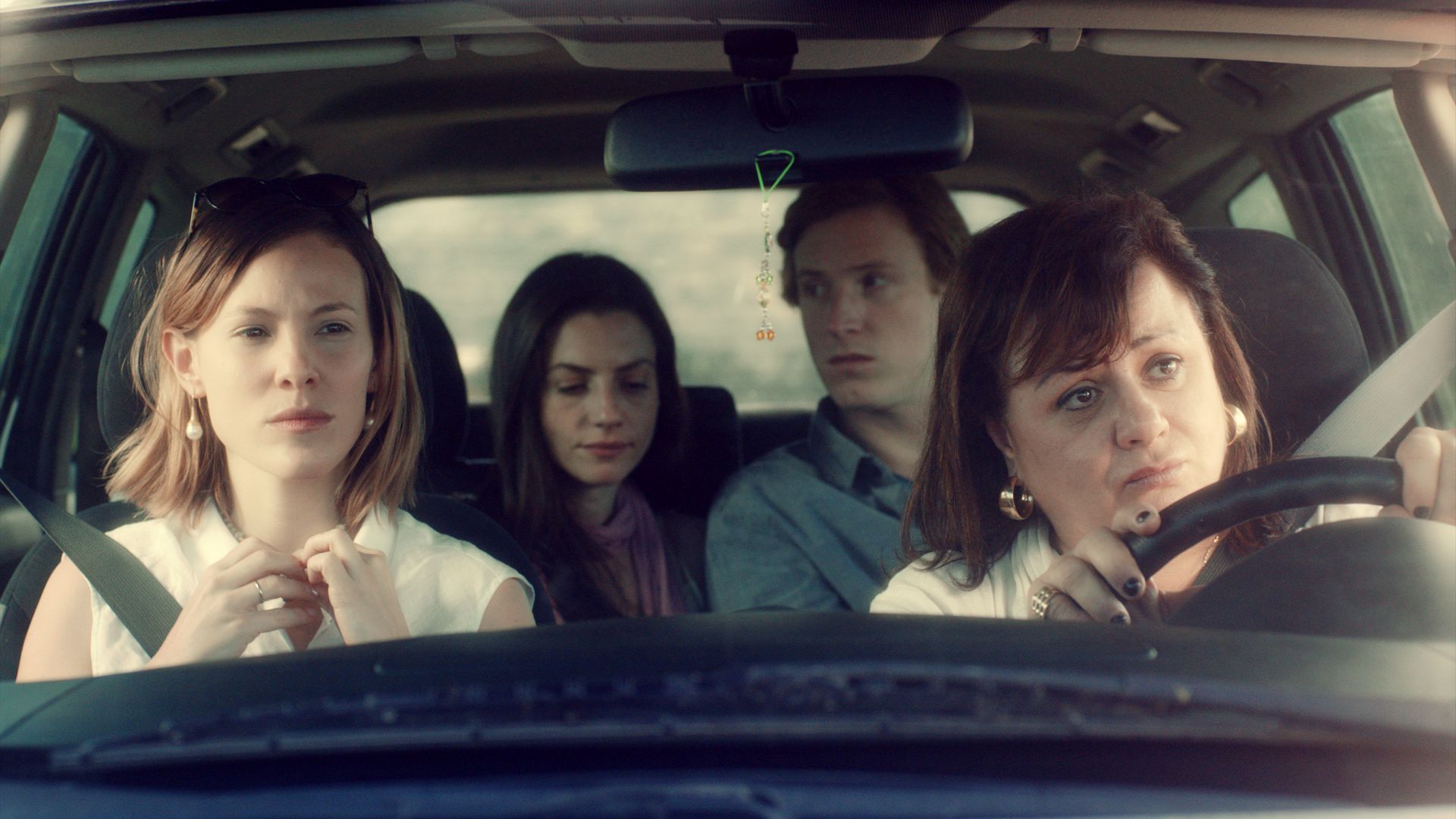
Pilcher also called out a few exceptional films that might get overlooked among the higher profile titles. Anywhere Else chronicles a difficult period in the life of Jewish grad student in Berlin who decides to return home to Israel after her thesis is rejected and relations with her boyfriend become strained. Made on a modest budget by director Ester Amrami, the film is notable for its strong ensemble performances. “It also highlights something that most people don’t realize,” Pilcher notes. “There’s an enormous Jewish population in Germany. The relationship that exists between the country of Israel and Germany is something most people aren’t aware of, certainly after the Holocaust.” Much more unconventional in form and style is Zdenek Jiráský’s In Silence which pays tribute to the many musicians and artists who were imprisoned at Terezin concentration camp during WWII. Among the prisoners were acclaimed concert pianist Edith Kraus, ballerina Alice Flachová, the vocal ensemble Comedian Harmonists, and so many others. Pilcher said, “It was originally supposed to be a documentary but it became a narrative docudrama. This one has a very interesting technique. The onscreen characters don’t talk. They remain silent and their thoughts are shared in voice-over and music and … very lyrical cinematography. It talks about art and music as a way to provide escape from what was going on there but also as a way of lifting people up.” Inspired by the research of Slovak musicologist Agata Schindlerová, In Silence promises to be a decidedly different and poetic approach to confronting memories of the Holocaust.
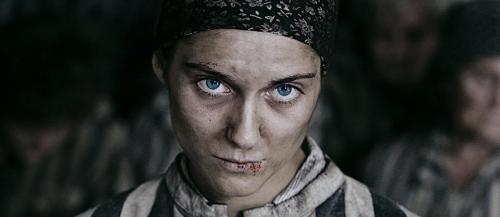
Previous festival attendees will be happy to know that the AJFF will be offering some new upgrades and changes to this year’s event. The Avalon 12, a luxurious new theater with reclining seats and other amenities, will be replacing last year’s location, the Regal North Point cinema. There will also be an art party collaboration with Creative Loafing at Mammal Gallery on February 7, and a number of surprise encore screenings will be offered on the final two days of the festival. Pilcher explained, “We’ve been asked for years by our audience, ‘Would you please add more screenings of the sold out films.’ In many cases, we have limitations from the distributors on how many screenings we can do, but it’s something we’ve been wanting to do. So this year, for the first time ever, we are going to take a selected number of sold out screenings of popular films and add additional screenings at the Tara Theater and Lefont Sandy Springs.”
A word of advice to anyone who is thinking about attending any of the films. Do not wait until the last minute to purchase tickets or you may be disappointed because many of the films sell out well in advance. To check dates, showtimes and to purchase tickets, visit the official AJFF website at ajff.org.
Jeff Stafford writes about art, film, music, gardening, and other favorite topics for various digital publications.
Newly Independent, ATL Jewish Film Festival Runs Jan. 28-Feb. 19
Related Stories
Reviews
Features
Reviews
As for me, I’m just passing through this planet at Bad Water, Knoxville
Harrison Wayne reviews the entangled sculptures and taxidermic specimens found in As for me, I’m just passing through this planet at Bad Water, Knoxville.
Weaving Work: On the Tapestries of Tabitha Arnold
Lina Alam profiles the spiritual allegories and the labor of weaving works created by Chattanooga-based artist Tabitha Arnold.
Kevin Ford: Ids of March at Tops Gallery, Memphis
Maria Owen reviews the playful invitations found in Kevin Ford's Ids of March at Tops Gallery, Memphis.

